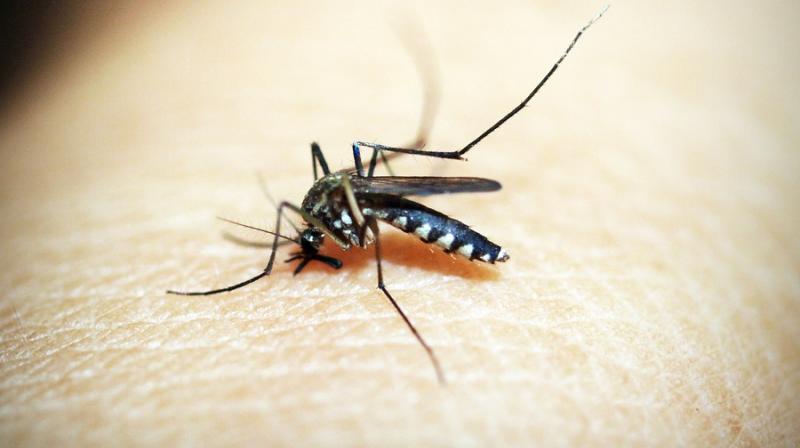Bite-mimicking malaria vaccine shows promise: studies

Paris: A malaria vaccine that mimics a mosquito bite yielded encouraging results in human trials, its makers said Thursday, raising hopes for thwarting a parasite that kills a child every two minutes.
The candidate drug, called PfSPZ, provided up to 100 percent protection for 10 weeks in a trial in Germany, although a trial in real life conditions in Mali gave a lower level of defence, they reported in two separate studies."We are extremely encouraged by these findings," said Stephen Hoffman of vaccine developer Sanaria, a company based in Maryland.But he stressed a lot of work lay ahead, and a registered vaccine may take another two years to reach the market.
PfSPZ uses a live, immature form of the malaria parasite, called a sporozoite, to stimulate an immune reaction in humans.In one trial, a version of PfSPZ required fewer shots and a lower dose of live malaria parasites than tested to date, researchers reported in the science journal Nature.For another form of the vaccine, sporozoites are exposed to radiation to weaken them before being injected into the human bloodstream.
A previous trial with the irradiated version saw 44 trial volunteers given five shots, each with up to 135,000 sporozoites, or three doses with up to 1.8 million sporozoites in total. The highest dose conferred up to 100 percent immunity, a 2013 report said.For the German trial, volunteers were given only three injections over eight weeks or 10 days, with sporozoite doses ranging from 3,200 to 51,200 per shot. All nine volunteers in the high-dose group enjoyed malaria protection 10 weeks after the last dose, compared to six out of nine in the medium- and three out of nine in the low-dose groups, said Hoffman.
No radiation
"The ability to complete an immunisation regime in 10 days will facilitate the use of PfSPZ-CVac in mass vaccination programmes to eliminate the malaria parasite and to prevent malaria in travellers," he added.The reason that fewer sporozoites were required was that they were not irradiated before injection. Instead, the vaccine was administered in conjunction with an anti-malarial drug, chloroquine, to stop the parasite causing disease once inside the human body.
PfSPZ is being developed against the Plasmodium falciparum mosquito-borne parasite, by far the deadliest type. Further trials are to follow in Mali, Ghana, the United States and Gabon. A second report, published in The Lancet Infectious Diseases, said 44 people given five doses of PfSPZ in Mali had a lower rate than non-innoculated peers after six months.
Of the control group given a placebo or dummy injection, 93 percent contracted malaria, said the team. In the vaccinated group, "only" 66 percent were infected. "That's the highest level of protection ever seen with a malaria vaccine... in a real setting," Hoffman told AFP.
According to the World Health Organization (WHO), there were 212 million malaria cases in the world in 2015 and 429,000 deaths. More than 90 percent of deaths occur in Africa. Another vaccine called RTS,S, developed by GlaxoSmithKline, is being tested in children -- the most affected population. It is considered the most advanced candidate, but results last year from a Kenyan trial showed it was only about four percent effective after seven years.
The developers of PfSPZ are aiming for efficiency of about 80-90 percent protection lasting for six months to a year, Hoffman said. "We hope we'll be there this year, maybe next year. We're closing in on it," he told AFP. Hundreds of millions of dollars have been spent on the quest for a vaccine, but bite-prevention remains the most effective prophylactic -- mosquito nets, insecticides, and wearing long sleeves in malaria-riddled areas.

